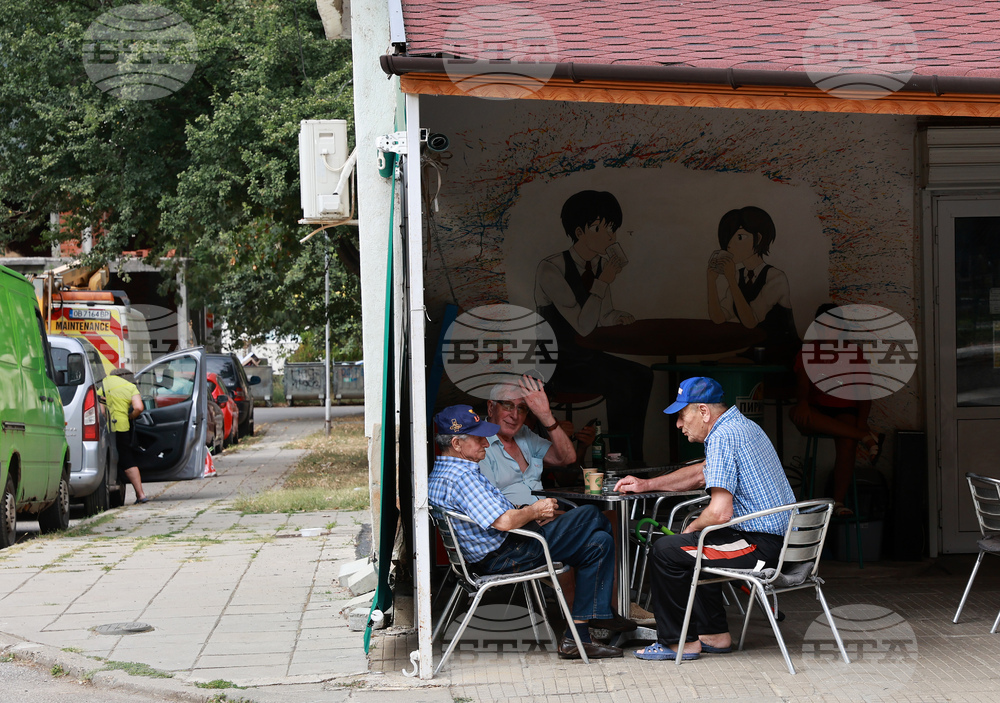site.btaAlpha Research: Government’s Approval Rating at 26%


Like most Bulgarian governments in recent years, the current coalition is gradually losing public support. According to data from an Alpha Research survey published on Wednesday, positive assessments of the government have dropped to 26%, while negative evaluations have risen to 39%. The cabinet maintains strong backing primarily from GERB supporters and a significant portion of pro-eurozone citizens. In fact, 46% of respondents see eurozone accession as the government’s greatest success.
In this context, Prime Minister Rosen Zhelyazkov is enjoying relatively solid support. Since January, public trust in him has risen by 6 percentage points, making him one of the few politicians with a positive rating.
The survey was conducted between July 7 and 14, 2025, as part of Alpha Research’s regular public opinion monitoring. It covered 1,000 adult respondents across the country using a stratified two-stage sample, with quota controls on key socio-demographic indicators. Interviews were carried out face-to-face at respondents’ homes using tablets.
Criticism of the government mainly stems from two areas: opposition to eurozone entry, driven by fear of rising prices, and frustration over the state’s failure to begin addressing persistent systemic issues in healthcare, social services (including the so-called “houses of horror” for vulnerable people), infrastructure, and more. Sociologists note that although the Prime Minister has some political capital, this alone cannot restore trust without tangible policy results.
A deep societal divide is also reflected in the dismal public perception of the National Assembly, which has just 8% approval compared to 69% disapproval — even lower than the share of voters backing the governing parties. A widespread sense of under-representation and lack of advocacy by elected officials threatens the credibility of the country’s top legislative body. Parliament Chair Nataliya Kiselova fares slightly better, with 16% approval and 50% disapproval, but still scores below the support base of the parties backing her.
President Rumen Radev remains the politician with the highest relative approval rating — 39% positive to 33% negative — but societal polarisation, especially over his proposal for a referendum on euro adoption, has eroded his support. Since January, his approval has fallen by 5 percentage points, with noticeable withdrawal among professionals, private sector workers, and those in modern industries.
Among political leaders, GERB chair Boyko Borissov retains the highest trust (22.3%) despite a slight drop since January. Recent anti-corruption actions targeting mayors and deputy mayors from the Continue the Change (CC) party have harmed CC’s image while boosting the profiles of Democratic Bulgaria leaders Bozhidar Bozhanov (16.5%) and Ivaylo Mirchev (16.3%). However, both remain relatively unknown or viewed neutrally by large parts of the electorate, meaning their future influence depends on swaying those undecided.
Assen Vassilev, now the sole prominent figure in CC, holds an approval rating of 11.6% — roughly unchanged since January. Analysts suggest this reflects the party’s remobilization following the arrests of two local government officials.
Electoral attitudes in non-election periods are not a reliable predictor of actual election results, but they indicate trends — gains or losses — caused by political participation. Currently, two issues dominate public discourse and could shift support across the spectrum: the fallout for CC–DB from anti-corruption investigations and Kiril Petkov’s withdrawal, and whether space exists for new political projects.
Asked whether prosecutors and investigators treat corruption cases involving the ruling coalition and opposition equally, just 5.9% said they did. Only 1.6% believed investigations focus more on the ruling parties, while 38.3% felt the opposition is being unfairly targeted. A further 41.7% said that neither side faces serious scrutiny in cases of high-level corruption.
This pervasive scepticism has fuelled support for the idea of a “new salvation” — a party that genuinely fights corruption. When asked whether they would vote for a new anti-corruption party, 49% said yes, 25% said no, and 25% were unsure. Sociologists note that the sense of complicity among current parties in shielding corruption cases is eroding trust in the political system as a whole, not just in individual parties.
GERB remains the leading political force with 25.5% support, largely unchanged from previous elections or January’s poll. Despite a significant gap, CC–DB remains the second force (13.9%), thanks to Democratic Bulgaria’s stable support and the mobilization of coalition supporters after a second major scandal in Varna.
Support for the Movement for Rights and Freedoms (MRF) – New Beginning project has risen to 13.1%, while the MRF’s traditional wing has collapsed to just 2.8%, a shift that may signal consolidation around Delyan Peevski’s faction.
GERB’s two coalition partners, the Bulgarian Socialist Party (BSP) and There Is Such a People (TISP), show little change, with BSP holding steady at 8% and TISP slightly down to 4.7%. TISP’s voter base, sociologists note, is highly emotional and reactive to both political missteps and perceived insults.
The nationalist segment remains steady at around 22% of the electorate, but internal dynamics are shifting. Vazrazhdane has lost ground (down to 11.5%) in favour of MECh (6.3%) and Velichie (4.1%). Analysts propose two hypotheses: first, Vazrazhdane focused heavily on anti-euro protests, a stance that has since been strongly taken up by President Radev, potentially diluting their unique position.
/RY/
news.modal.header
news.modal.text